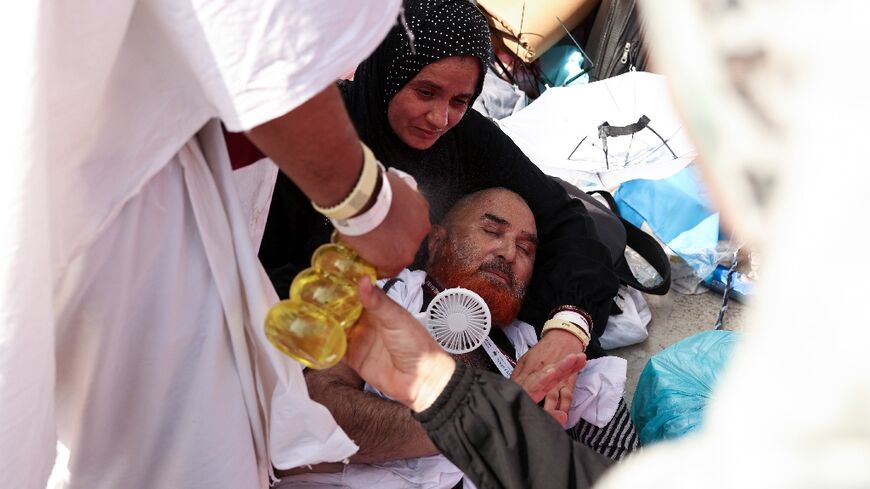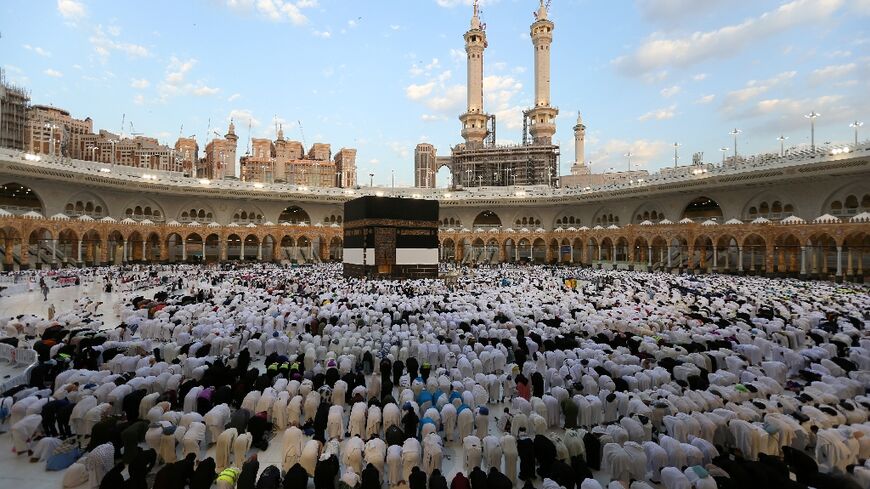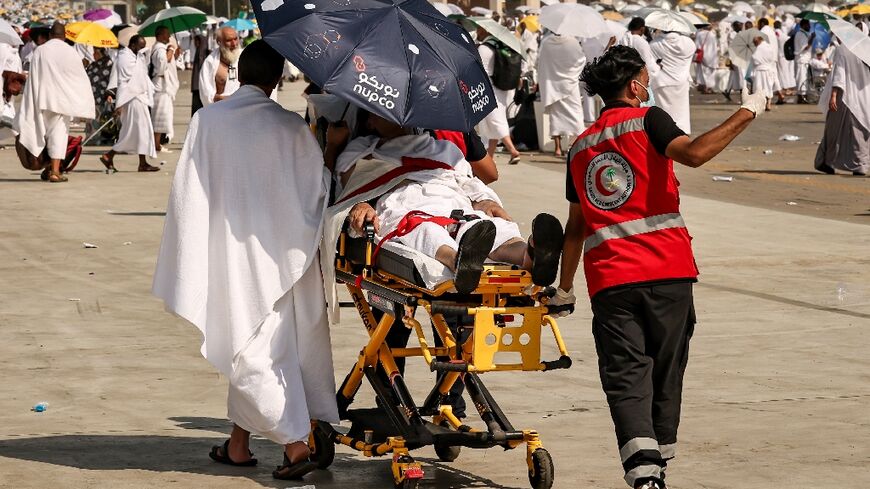14 Jordanian, 5 Iranian pilgrims die at Saudi Hajj from extreme heat
Last month was the hottest May on record, according to scientists, and rising temperatures are particularly concerning for the Gulf.

About 20 people have died and more are missing amid the ongoing Hajj pilgrimage in Saudi Arabia, prompting officials to urge worshippers to avoid the blistering heat as climate change take its toll on the region.
The Jordanian Foreign Ministry announced on Sunday that 14 pilgrims from the country had died while performing Hajj rituals and another 17 pilgrims are missing. The deceased and missing pilgrims are not part of Jordan’s official Hajj delegation, the ministry clarified in a statement.
The ministry later said that the 14 people died “after suffering sun stroke due to the extreme heat wave,” Agence France-Presse reported.
Iranian Red Crescent chief Pirhossein Koolivand said on Sunday that five pilgrims from the country died during this year’s Hajj in Mecca and Medina, though he did not specify how, according to AFP.
Iranian media reported on Monday that the death toll had risen to seven, citing the Red Crescent.
The Hajj is an annual Islamic pilgrimage to the city of Mecca. It began on Friday this year and will run until Wednesday. Muslims often travel to Medina as well during the pilgrimage.
As in years past, temperatures have been high during this pilgrimage. AccuWeather reported a high of 113 degrees F (45 degrees C) in Mecca on Monday. However, AFP reported that the kingdom’s weather service recorded a temperature of 125 degrees F (52 C) at the city’s grand mosque. The Saudi Health Ministry said that 2,764 pilgrims on Sunday alone suffered from heat stress.
Saudi Health Minister Fahd Al-Jalajel urged pilgrims on Monday to avoid peak sun hours from 11 a.m. to 4 p.m. local time. He additionally encouraged worshippers to avoid direct sun exposure and hot surfaces, use umbrellas and stay hydrated, per the health guidelines, the official Saudi Press Agency reported. The ministry issued similar warnings on Saturday and Sunday.
Deaths at Hajj are not unprecedented. At least 240 people died during the 2023 Hajj, though the figures by individual countries did not always specify the cause of death. More than 10,000 heat-related illnesses were recorded last year, a Saudi official told AFP.
Why it matters: The deaths at this year's Hajj follow a historically hot month. May 2024 was the hottest May on record, making last month the 12th in a row in which the global average temperature reached a record value, according to the European Union’s Copernicus Climate Change Service.
Climate change is having a significant impact on the Gulf. In addition to the effects of rising temperatures, the Gulf experienced record rainfall during the spring. Cities in the region are ill-equipped to deal with some of the effects of climate change, including increasing temperatures, shifting rainfall patterns and rising sea levels, Sebastian Castelier wrote for Al-Monitor in May.
Know more: Egyptian President Abdel Fattah al-Sisi left Saudi Arabia on Monday after performing the Hajj ritual. Chechen President Ramzan Kadyrov likewise made the pilgrimage this year, according to the Saudi Press Agency.
Saudi Crown Prince Mohammed bin Salman missed the G7 meeting in Italy last week due to his Hajj-related responsibilities.






